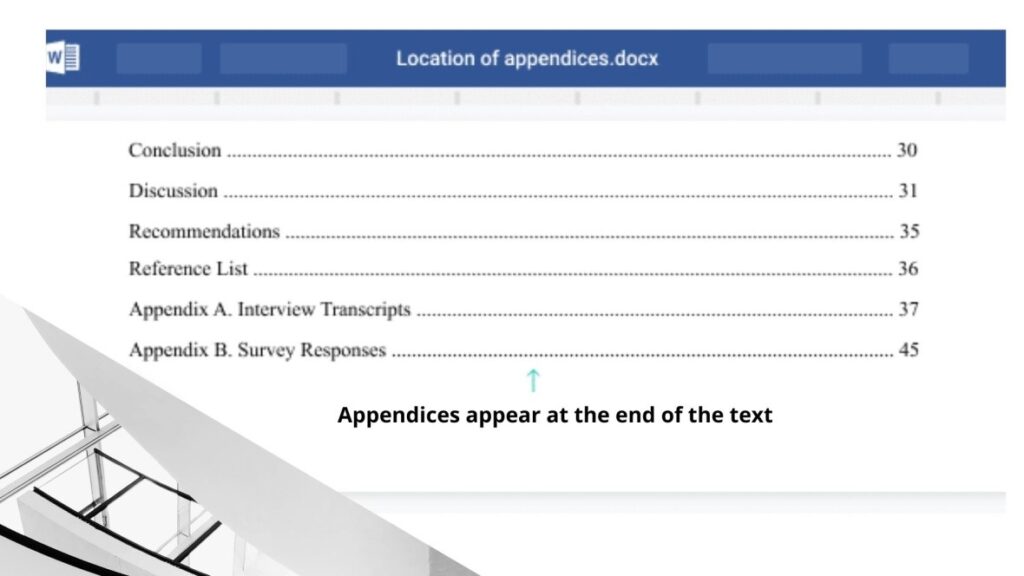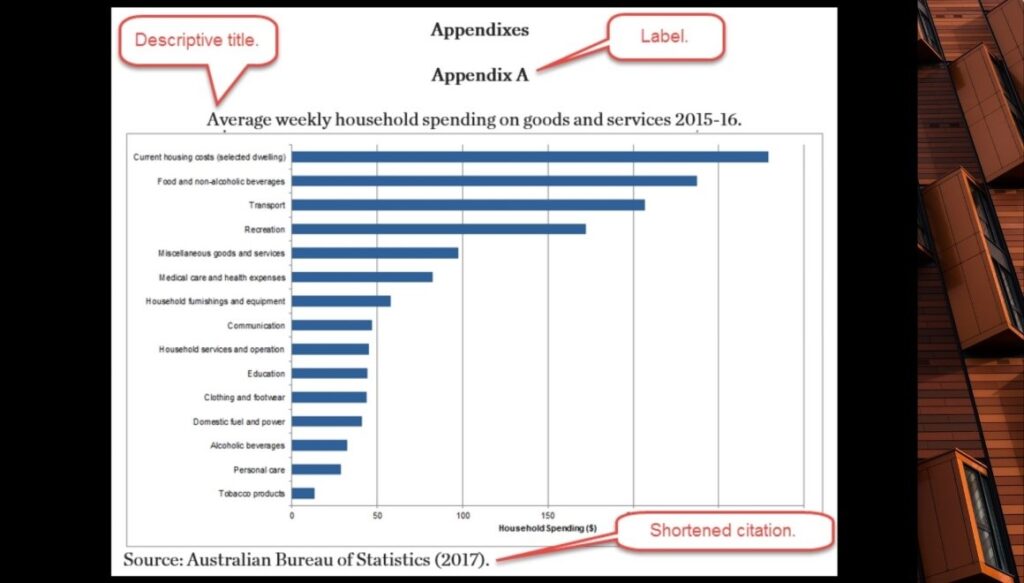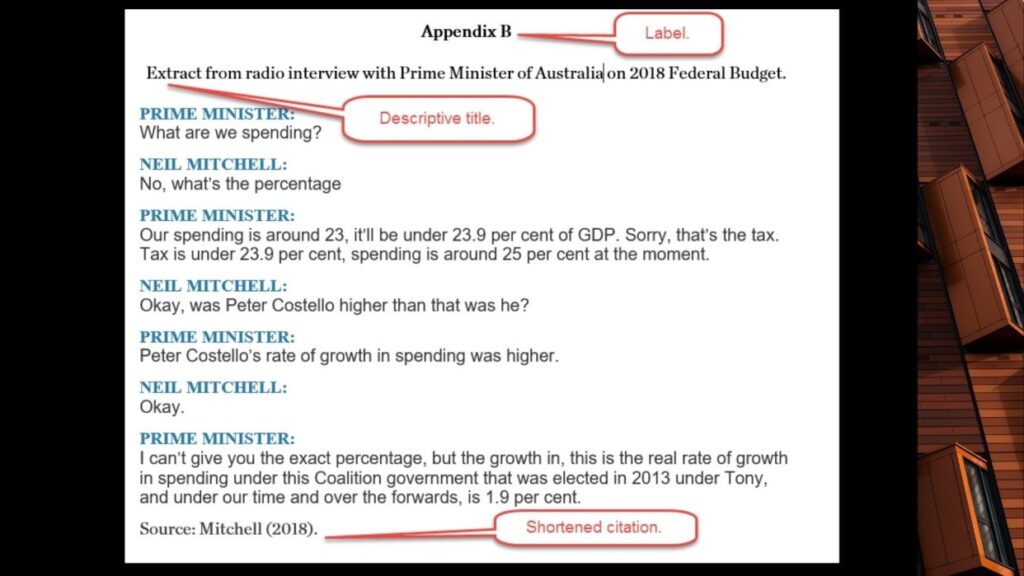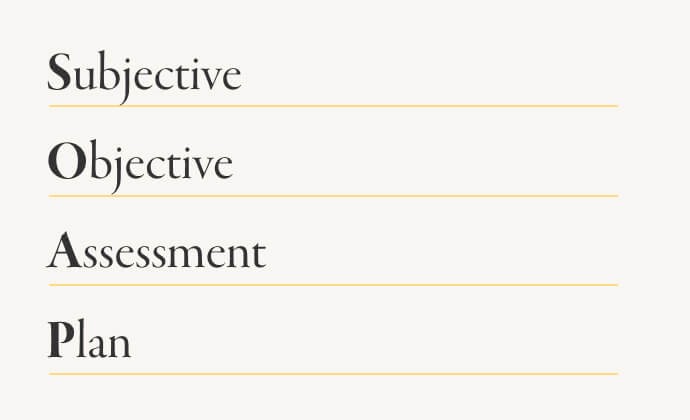How to Structure an Appendix Section for Reports (With Examples)
Introduction
Most students will ask, “What is an appendix?”
“How do I write my own appendix?”
Well, an appendix will allow a better understanding of the information that has been written in an essay or academic paper.
An appendix will give a summary of the references added in an academic paper. Appendices are found in all essays or academic papers.
It will include the reference section, the paper’s summary of raw data, and any other details about the method used in doing the task.
The appendix will contain all the information included in the body of the paper. In addition, the statistics and references from different sources and authors are shown in the appendix.
An appendix is seen as a supplementary to the research paper. It contains non-essential information. The paper should stand alone without the appendix. Also, appendix pages don’t count as part of the research paper. It is essential not to confuse the appendix with the abstract, which contains very essential information and comes after the title page.
The critical point to keep in mind about an appendix is that it is not essential. The reader can still understand the information on the paper if it were to be removed.
If removed, it will not diminish the reader’s ability.
Why is an Appendix Necessary?
An appendix is necessary because it explains what a paper contains. In addition, it explains the complex information.
It presents information that adds to the reader’s understanding. Some of the information you might include in the appendix:
- Transcripts to interviews you conducted (which can be quoted from the main text).
- The documents you used in your research, such as instructions, questionnaires, scales, or tests.
- Details of the statistical data are represented in figures and tables.
- Details of the equipment used.
When discussing information found in the appendix, make sure you state it the first time you refer to it.


Also, note that there is no need to mention the appendix if you need to mention the interviews again each time.
How to Structure the Appendix
Though the structure may vary slightly from person to person, there is a general structure that the appendix should follow.
The MLA and APA appendix forms are a bit different, but the structure is the same.
Each appendix contains the following:
- The crossover of body text and appendix
- References for the main body paragraphs
- Put page numbers for multiple appendices
- Label + Title (Should be at the center of the title page, with fonts capitalized). The title will be followed strictly by the label.
- In referencing an appendix, put (#) after a sentence
- Appendix letter or number
- Cite as normal references from third-party sources in the body text and appendix. You are advised not to create another separate reference list. (You may need to see our other guides on citing sources such as websites, books, and the bible to ensure you do it correctly).
- Add a reference number to the body in the case where the appendix contains data
- Paragraphs 2 and 3 are the following body texts
- The first paragraph is not indented
Appendix Format
It is crucial to understand what an appendix format looks like. The normal format will help when you want to write your dissertation.
- Heading (Appendix#). It entails having a letter or a number. The first appendix title can be A or 1.
- The list of references of body paragraphs.
- Index table. It follows the list of appendices.
- The page number.
- The footnotes.
An Appendix for the Various Writing Styles
APA Appendix
Many instructors will have their students include an appendix as part of their APA paper. Unfortunately, the APA Manual doesn’t cover the required appendices format. For the structure and information to be correct, follow the guidelines given below in APA style:
- The appendices need to begin with the header ‘Appendix’ and then by the heading Appendix A, Appendix B, and Appendix C. If you have additional appendices, you can use Appendix AA, Appendix BB, and Appendix CC. If there exists only one appendix, indicate it as just ‘Appendix.’
- It should be written atop the title of the appendix.
- Include abstracts.
- Each appendix section should follow the order in the paper you are writing.
- The appendix section should be on a separate page.
- You should include footnotes.


Some of the elements of APA appendices are:
- Statistics, figures, and graphs.
- Sample calculations like profit and loss accounts.
- Research instruments used like scales and questionnaires.
- Raw data as supporting evidence.
- Raw data such as responses to questionnaires.
- Press clippings for support of the author’s point of view.
- Lengthy information like interviews
- Legal documents like contracts, memorandum of understanding, and shareholder certificates.
- Interview transcripts.
- A detailed description of illustrations, maps, and images for visual evidence.
- Financial projections can be in the form of spreadsheets or other documents.
- Field observation information.
- Datasheets.
- Correspondences such as emails and letters.
- Specialized data or contributory facts that the college students or writer will capture in the appendix section summarize it in the main text.
- Charts and tables are helpful if the writer would like to provide actual statistics.


Rules to Follow in APA
- Have a title for every appendix section.
- In making references in the body paragraphs, add (see appendix B) following a text.
- All appendices need to show each a point of their own.
- For more than one appendix, use the alphabetical order ABC in labelling them.
- You should keep the title at the center.
- All the appendices should be on their own page, no matter the size.
- You should write the first paragraph without indenting it.
- You should have double spacing.
Remember to keep everything original to avoid plagiarism, via means such as paraphrasing!
Chicago Style Appendix
Writing a Chicago-style appendix is similar to that of the APA style. The appendix section should follow the guideline below:
- You describe more than one appendix in the appendices.
- Use the New Roman font.
- The font size has to be 12.
- Show the numbers on the top right of every page.
- Show the bibliography on the last page.
- Indicate the page numbers as 1, 2, and 3.
- Include the footnotes in the bibliography.
- Do not indicate on the cover page a page number.
Footnotes or endnotes are used to cite your sources. You will only need to use footnotes when you have copyright permission or explanatory notes.
The content notes have information that supplements the text but would not be appropriate if included in the main text.
MLA Format Appendix
The rules and guidelines are similar to those in the APA appendix. There only exist very few differences:
- The appendix section is indicated before the reference list.
- Each separate appendix will be Appendix A, Appendix B, and Appendix C to indicate their titles. It is advisable, if you have a complex appendix, to break it down into separate appendices.
- Every appendix should follow the order of the information stated.
- Include page numbers in each of the appendices.
- All the appendices should be on their own page, size notwithstanding.
Rules to Follow in MLA Format
- The title should be at the center.
- There should be double spacing.
- Ensure a hanging indent in your formatting of the references.
- Write the reference section alphabetically.
- Use italics in complete writings, titles, books, recordings, and internet sites.
You can check our guide on citing websites in MLA to learn more about the MLA style.
Harvard Style Appendix
In this case, the appendix will be before the reference list and at the very end of the paper or report. You should cite all the information included in the appendices in the essay’s body as Appendix.
If the information included in the appendix is from a published source, you will need to add a citation in the appendix pages. A full citation will consequently appear in the list of references.


The citation in full will be placed in the list of references in a systematic order by the author with the rest of the references from your paper.


- Begin writing an appendix by indicating the title.
- Ensure each distinct item in the appendix will follow the same order as the text.
- Create a descriptive title or label for each of the items in the appendix.
- Ensure the title and label are centred. Change the title to bold font, i.e., Appendix A
- If the content you are using is from a published source, indicate it as the word ‘Source,’ followed by a citation. You will then place it at the bottom left of the appendix. The reference list will show a complete reference.
Writing an Appendix
When writing an appendix, start by collecting information. You are also required to format the appendix appropriately.
Consequently, you should ensure the appendix is polished to be helpful, engaging, and accessible to the reader.
Collect Data for the Appendix
- Add raw statistical data – When writing an appendix, you should add the raw data you are confident is relevant to the paper or essay. The data should be relevant in supporting your findings. You should only include the raw data if you will refer to or discuss it in the paper.
- Raw data could have sample calculations referred to in the body of the paper. You should add it to the appendix.
- Choose to add the contributory facts gathered from different sources. It will support the findings. Ensure that you have cited appropriately information you get from other sources.
- Add supporting charts, graphs, and images – When writing an appendix, include visuals such as charts, maps, graphs, photographs, drawings, and images.
You can include charts or graphs you have created, or those gathered from a different source. Ensure you site the visuals you do not own in the appendix.
- Make a note of the research instruments used in the appendix – State the research instruments used to gather information. It could be a tape recorder, video camera, or any other device used in research. It helps the reader understand the instruments used in conducting the research. You can state that “All the surveys and interviews were carried out in a private setting in person and recorded using a video camera.”
- Include the interview surveys or transcripts – Add any surveys or interview transcripts for the research. The transcripts need to capture the whole interview. They should include even the Q and A sessions. Include also copies of surveys written by hand or the copies completed online.
You should also add the correspondences on various subjects in your paper like letters, notes, or email correspondences written from and involved in the research.
Format the Appendix
- Add a title to the appendix – It should be indicated clearly on top of the page. Capital letters, ‘APPENDIX’ should be used. Alternatively, use ‘Appendix.’ Use a similar font size and type to the one used in the chapter headers for your essay or paper.
- In case you have several appendices, order them by number or letter and do it consistently. If you are using numbers, let it be, Appendix 1, Appendix 2, and Appendix 3. If you are using letters, it should be Appendix A, Appendix B, or Appendix C.
- Each appendix begins on a new page if you have different appendices. It will help the reader not get lost as they look for the appendix.
- Make an order of the content – The content in the appendix should appear the same way it appears in the text.
- E.g., if raw data has been placed on one of your essays, ensure the raw data appears in line one in your appendix. If interview questions are mentioned last in your paper, they should be last in the appendix.
- Ensure the appendix appears after your list of references – Appendices appear after your list of references. If the instructor wishes to have it any other way, you should follow the stated requirements.
Also, ensure that you show the appendix on your paper’s table of contents.
- Insert page numbers – At the bottom right corner of the page, you should insert the appendix page numbers. It can also be centred. Use a numbering format that is consistent in the entire paper.
If the page numbering of the paper ends at 18, continue numbering from 18 when you insert the appendix.
Polish the Appendix
- Ensure you review the appendix to confirm cohesion and clarity – The word count or standard page is not certain for the appendix. It should also not be extremely long either. Go through your appendices and confirm you have included relevancy to the paper. You may choose to have another person go through the appendix to ensure that you have captured all the relevant information.
- Check for grammatical errors – Review the appendix and ensure it is free from any form of grammatical error. Use the different types of software available for grammar checking. Ensure the appendix appears as professional as possible.


- Make a reference to the appendix to the paper – Once you have completed your appendices, ensure you site your text in your appendix using the title.
It will indicate to the reader that what is contained in the appendix has relevance to the text. It allows the reader to use an appendix in accessing supplementary information.
Final Word
Once you follow the laid-out formats and guidelines, it is easy to learn how to make an appendix.
Take your time to study this guide. It will give your insight into how to write your appendix. Writing appendices has never been this easy.
Frequently Asked Questions
- What is an appendix?
An appendix is a section in an academic paper or essay that will supplement the understanding of your research by the reader. An appendix may include:
- Detailed descriptions of equipment used
- Interview transcripts
- Questionnaires
- Raw data
- How can one add an appendix to the paper?
Add an appendix to a paper by ensuring you indicate the appendix name, such as Appendix A, Appendix B, or Appendix C. Ensure you put the title in the right place depending on the writing style in use.
- How can one create an appendix in MS Word?
You will start by creating a section break in the area where you want the appendix to appear. A “continuous break” is what you will use when you want it to appear in a new section. Use “page break” when creating the appendix on a new page. Use the heading styles to create a header in the appendices. It will be easier to go through the document and locate the appendix without taking much of your time.
- How does one cite an appendix?
It is dependent on the style of citation in use. In the MLA style, use parenthetical citation. It will name the appendix being cited: (Wittenberg, Appendix B). When using the APA style, add the year of publication (Witterberg, 2018, Appendix B). In Chicago style, you will include the numbers of the pages.
- Should you have the appendix content in alphabetical order?
The listing of items in the appendix should follow alphabetical order. When there are numerical items that need to be included, they should follow the order of a number.
- Can I include references in the appendix?
If references have been used, yes, you should include the references in the appendix. It will thus allow the reader to authenticate the information sources in the appendix and further research.
- Can one input charts, figures, and photographs in the findings or body of the report?
If you are writing a report for a school course, consult your professor for a guideline. Otherwise, the rule is to always include it in the appendix supplementary figures. You can have as many visuals in a single appendix. If the visuals are necessary for the comprehension of a paragraph, then you can add them to the body. The table number and figures included need to be kept in a separate sequence.
Finally, our premium writers are ready to ace that assignment for you. A trial doesn’t hurt!


I‘m a freelance content and SEO writer with a passion for finding the perfect combination of words to capture attention and express a message. I create catchy, SEO-friendly content for websites, blogs, articles, and social media. My experience spans many industries, including health and wellness, technology, education, business, and lifestyle. My clients appreciate my ability to craft compelling stories that engage their target audience, but also help to improve their website’s search engine rankings. I’m also an avid learner and stay up to date on the latest SEO trends. I enjoy exploring new places and reading up on the latest marketing and SEO strategies in my free time.







